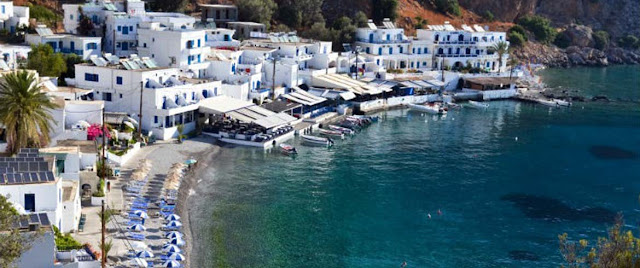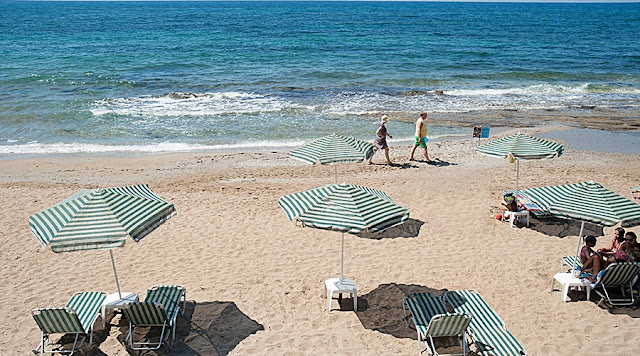Loutro in Crete
Loutro is a small fishing village in the area of Sfakia, in southwestern Crete. It was the site of the ancient city of Phoenix and was the port of ancient Anopolis. Later, it became the "winter" port for Chora Sfakion, due to the fact that the enclosed bay and the small island at its entrance create a natural harbor where ships can be safe even in very bad weather.
Loutro is a place for those people who want something different. A small picturesque fishing village in south west Crete, not yet spoilt by mass tourism. For example there are no big hotels with swimming pools. There are no overcrowded streets, restaurants and beaches, there are no cars! The only access is by boat or as you wish, by foot (1.5-2 hour trekking from Chora Sfakion). There are daily ferries to/from Chora Sfakion, Sougia, Gavdos island, Paleochora and Agia Roumeli.
Once in Loutro, enjoy walking in the scenic, unspoiled mountain countryside with its valleys and gorges. Firstly, you could visit the fort Koules above Loutro and then reach Finikas small port. Among the older buildings that you can see in Loutro, you will find the Old School used as seat of Chancellor of Sfakia in 1821 and the very old Church of Panagia, next to the school and admire the high Cretan date palm trees.. In ancient times, habitats of the area believed in Cretan-born Zeus and Apollo in Delphi. If you want some meters south from the village you will see the ruins of the Castella fort and later you will see part of the ancient town Phoenix and the temple of Apollo.
You could also climb to the beautiful village and plateau of Anopolis; you have to climb 2000 feet on a 2000 year old mule ascending zigzag track and reach Anopolis in almost two hours, where there is a very good choice of taverns. You could also explore the gorge of Aradena. Moreover, if you are a keen snorkeler, you might meet sea turtles that are very frequent visitors of Loutro.
The village was named ("Loutro" means "bath" in Greek) after the baths which have been found in the area and from which water was directed to nearby Anopolis.











Σχόλια
Δημοσίευση σχολίου